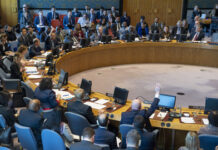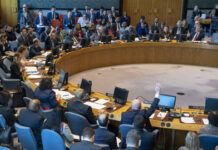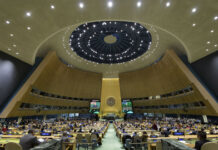Photo Credit: Global Diaspora News (www.GlobalDiasporaNews.com).
Police and National Security Intelligence officers detained 32 Rohingyas, a stateless ethnic minority, for around 16 hours in Bangladesh’s southeast Cox’s Bazar region on May 17, 2024, on allegations of holding an unauthorized meeting of the Asia-Pacific Network of Refugees (APNOR), a region-wide network of civil society organizations and advocates.
Officers questioned nearly all of those detained about their connections to Shafiur Rahman, a U.K.-based Bangladeshi freelance journalist and documentary filmmaker whose reporting covers how Bangladesh government policies have negatively impacted the Rohingya population, according to Rahman and two of those detained, who spoke to CPJ on the condition of anonymity due to fear of reprisal. Several of those detained from the APNOR meeting were also shown Rahman’s photo and asked if they knew him.
Authorities also ordered participants to remove the passwords from their mobile phones and laptops, which remained in police custody as of June 25, according to the sources who spoke to CPJ.
Bangladesh hosts over one million Rohingya refugees in camps that human rights organizations say are characterized by poor conditions.
Rahman told CPJ that he was not associated with APNOR. Rahman added that the latest actions posed a threat to his safety and ability to work in Bangladesh’s Rohingya camps, where journalists have reported receiving threats from the country’s authorities as well as from those living inside the camps.
“These actions amount to harassment by proxy, as the authorities are using their influence to silence and intimidate me indirectly as well as intimidating [Rohingya] youth who have nothing to do with me,” the journalist said.
Rohingya journalists have told CPJ and other press freedom organizations that Bangladesh authorities have subjected them to surveillance, harassment, and threats in retaliation for their work.
Mohammad Ali Arafat, Bangladesh’s state minister for information and broadcasting, told CPJ that he would look into the matter but did not provide further information by the time of publication. Rashed Hasan, deputy director and public relations officer of National Security Intelligence, did not respond to CPJ’s messages requesting comment.
Source of original article: Committee to Protect Journalists (cpj.org).
The content of this article does not necessarily reflect the views or opinion of Global Diaspora News (www.GlobalDiasporaNews.com).
To submit your press release: (https://www.GlobalDiasporaNews.com/pr).
To advertise on Global Diaspora News: (www.GlobalDiasporaNews.com/ads).
Sign up to Global Diaspora News newsletter (https://www.GlobalDiasporaNews.com/newsletter/) to start receiving updates and opportunities directly in your email inbox for free.


































